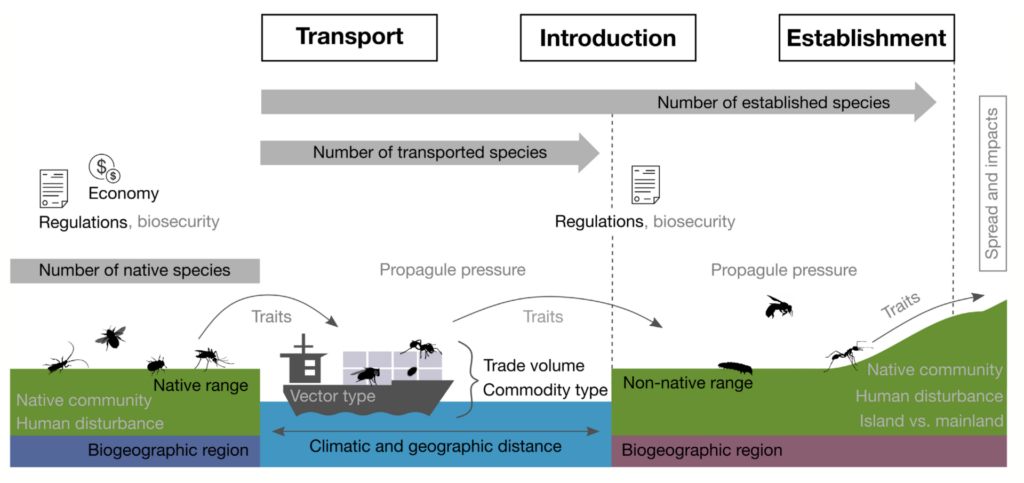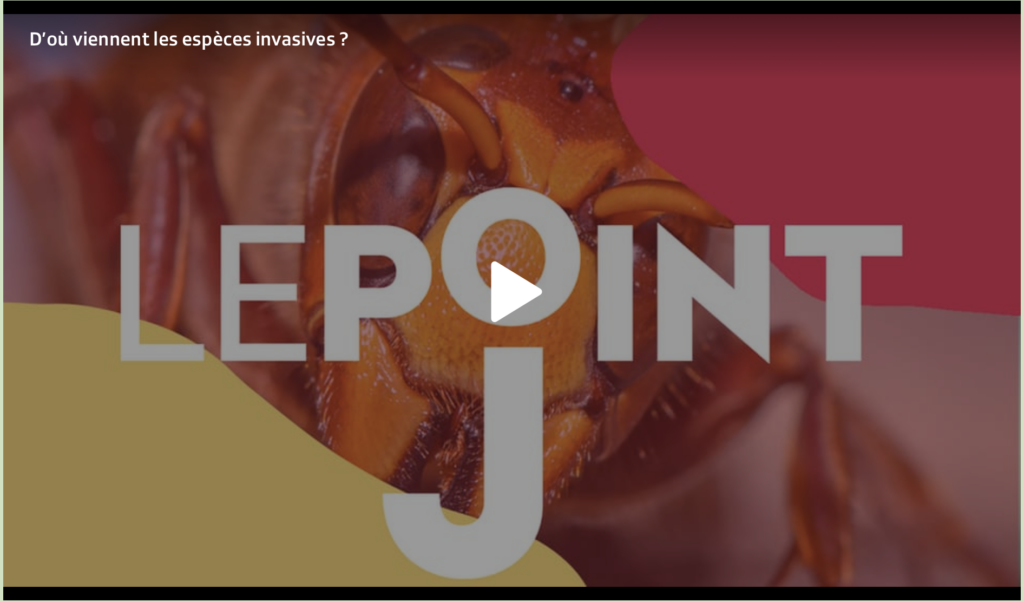Every Friday, the RTS show CQFD invites a scientist about their work, life and research. Bastien Confino has invited Cleo on 01.12.2023. If you want to listen to the show, see link.
Category: News
Bertelsmeier Group News, from new publications, public outreach, press, to new members
Everything you wanted to know but didn’t dare to ask – sex, silk spinning and use in legal cases on the RTS show CQFD (in French):
Link to listen to the podcast with Cleo.
Nevertheless they are popular pets in Switzerland and other European countries. Jérôme Gippet has published a paper on that topic in collaboration with Jérémie Moulin and Olivia Bates in the journal Parasites and Vectors.
It is urgent to raise public awareness of the health risks associated with L. fulica in both tropical countries and Europe and to regulate its trade and ownership internationally. Our results highlight the importance of accounting for multiple types of human-wildlife interactions when assessing risks of infectious disease emergence. Furthermore, by targeting the species most likely to spread pathogens, we show that it is possible to rapidly identify emerging disease risks on a global scale, thus guiding timely and appropriate responses.
Link to paper
UNIL press release here
SwissInfo (in English)
Where do invasive species come from?
Congratulations to Gyda who published her PhD research in collaboration with Sébastien, Olivia, Cleo and an international team of invasion biologists. The paper is about the role of biogeography, trade and regulations in explaining global flows of insect transport and establishement. You can find it here: Link

